Food and beverage manufacturing facilities face unique challenges when it comes to flooring. The right floor does more than support equipment and foot traffic—it plays a critical role in food safety, operational efficiency, and regulatory compliance. Food and beverage flooring solutions offer specialized systems designed specifically for the demands of food processing plant environments. At Canadian Concrete Surfaces, we understand these challenges and provide custom epoxy floor coating installations that meet the strict requirements of the food and beverage industry.
Why Food Processing Facilities Need Specialized Flooring
Food manufacturing facilities create demanding conditions for flooring systems. These environments experience:
- Constant exposure to moisture from cleaning and processing
- Thermal cycling from hot production processes and cold storage
- Chemical exposure from cleaning agents and food products
- Heavy foot traffic and potential impacts
- Strict hygiene requirements under CFIA and Health Canada regulations
Standard concrete floors without proper floor coatings quickly deteriorate under these conditions, creating safety hazards and potential contamination risks.
The Cost of Inadequate Flooring
Food and beverage processing facilities with improper flooring face significant risks:
- Bacterial growth in cracks and joints
- Production downtime for floor repairs
- Failed inspections and potential shutdowns
- Slip and fall incidents from wet or greasy surfaces
- Product contamination from concrete dust or floor deterioration
One study from the food processing industry found that production facilities can lose up to $20,000 per hour during production shutdowns related to floor maintenance or repairs.
Benefits of Epoxy Flooring for Food Processing
Resinous or commercial coating systems provide specific advantages that make them ideal for food and beverage facilities.
Seamless and Non-Porous Surface
The most important feature of seamless flooring for food safety is its seamless application. Unlike tile or other types of flooring with grout lines and joints, epoxy floor coatings create a continuous surface with:
- No seams where bacteria can hide
- No joints that can harbor moisture
- Complete floor-to-wall cove bases for floors that are easy to clean
- Waterproof protection for the concrete substrate
This seamless characteristic makes these floors significantly easy to clean and sanitize, which is essential for food safety management and hygiene.
Chemical Resistance
Beverage processing facilities use harsh cleaning chemicals to maintain sanitary conditions. Industrial food-grade coatings can be formulated to resist:
- Acid-based cleaners
- Alkaline degreasers
- Hot water sanitation
- Steam cleaning procedures
- Food acids from processing
The chemical resistance of epoxy coating prevents deterioration and stain prevention, ensuring the floor maintains its protective qualities even with daily cleaning procedures.
Temperature Resistance
Many food processing operations involve both hot and cold areas. Specialized epoxy systems can withstand:
- Freezer and cooler environments as low as -30°C
- Hot water cleaning up to 85°C
- Thermal shock from temperature changes
- Steam cleaning without damage
- Hot equipment areas without softening
This temperature stability prevents the cracking and deterioration common with standard flooring when exposed to temperature fluctuations.
Slip Resistance
Wet conditions are unavoidable in beverage processing. High-performance surfaces can be customized with texture additives to create surfaces with appropriate slip resistance for:
- Wet processing areas
- Packaging zones
- Loading docks
- Walk-in coolers
- Areas with constant foot traffic
The slip coefficient can be adjusted based on the specific needs of different areas, balancing safety with clean-ability. Our commercial flooring solutions are designed to withstand heavy use while preventing slip hazards in areas with high traffic.
Regulatory Compliance for Food Processing Floors
Food processing plant operations must meet strict regulations for safe operation. Proper food-grade surfacing helps meet requirements from:
CFIA and Health Canada Requirements
Canadian food manufacturing floors must comply with Safe Food for Canadians Regulations which include specific provisions for:
- Floors that meet standards that can be effectively cleaned and sanitized
- Surfaces that prevent accumulation of food particles
- Materials that resist deterioration from cleaning procedures
- Non-toxic and non-absorbent floor surfaces
- Drainage systems that prevent standing water
Polymer floor systems can be designed to meet all these requirements while providing documentation for inspections. Commercial and industrial standards for hygiene are fully addressed with our resinous flooring solutions.
HACCP Compliance
Hazard Analysis Critical Control Points (HACCP) programs identify potential physical, chemical, and biological hazards in food production. Flooring is a critical component of HACCP plans because:
- Deteriorated floors can introduce physical contaminants
- Cracks and joints can harbor pathogenic bacteria
- Improper drainage can create standing water hazards
- Unsealed concrete can generate dust contamination
Properly installed seamless surfaces eliminate these risks and prevent bacteria growth, supporting HACCP compliance throughout the facility. Antibacterial properties can be incorporated into our industrial epoxy flooring for added protection.
SQF and Other Certification Programs
For facilities seeking Safe Quality Food (SQF) certification or other international standards, flooring documentation becomes part of the audit process. Food-grade flooring installation should include:
- Material safety data sheets
- Chemical resistance documentation
- Installation certification
- Maintenance procedures
- Testing results for slip resistance
These documents support certification processes and demonstrate commitment to food safety standards. Our industry epoxy systems exceed these requirements with antibacterial floors that resist stain penetration.
Installation Process for Food Processing Epoxy Floors
Proper installation is critical for performance in food and beverage industry facilities. The process includes:
Surface Preparation
The most important step in resinous coating installation is concrete surface preparation:
- Shot blasting or diamond grinding to remove contaminants
- Crack repair and joint treatment
- Moisture testing and mitigation if needed
- Surface profiling to proper CSP (Concrete Surface Profile)
- Removal of existing coatings or sealers
Proper preparation ensures strong adhesion and prevents future delamination issues, creating a foundation for long-lasting performance.
Trench Drains Installation
Food and beverage facilities require effective drainage systems for sanitation and operation:
- Linear trench drains with proper slope (1-2%)
- Seamless integration with epoxy flooring for the food industry
- Heavy-duty grates for equipment traffic
- Antibacterial properties to prevent bacterial growth
- Easy access for cleaning and maintenance
These drainage systems efficiently remove water and prevent standing moisture that can compromise food safety and create slip hazards. Surfaces that come into contact with water regularly need specialized treatment.
Flooring Application
The main flooring system is installed in layers:
- Primer coat for adhesion
- Body coat for build and durability
- Broadcast aggregate for texture (if required)
- Topcoat for chemical resistance and finish
Each layer requires proper cure time and temperature control during installation. Our commercial epoxy formulations are available in a variety of finishes to match your specific needs.
Quality Control
Professional installation includes thorough quality control:
- Thickness testing
- Adhesion testing
- Slip resistance verification
- Visual inspection for pinholes or defects
- Final cleaning and acceptance testing
These quality measures ensure the floor will perform as expected under demanding conditions. Our epoxy flooring services include comprehensive quality control to ensure long-lasting performance for your plant flooring.
Maintenance of Epoxy Floors in Food Processing Facilities
With proper maintenance, food processing floor systems can provide years of service:
Daily Cleaning Procedures
Regular cleaning maintains sanitary conditions and extends floor life:
- Use approved cleaners at recommended dilutions
- Allow sufficient dwell time for sanitizers
- Use automatic scrubbers with non-abrasive pads
- Ensure complete water removal after cleaning
- Follow manufacturer’s maintenance guidelines
Proper cleaning prevents chemical damage while maintaining sanitary conditions. Surfaces that are difficult to clean can compromise hygiene standards in food facilities.
Periodic Maintenance
Even the best floors require periodic maintenance:
- Inspect for damage quarterly
- Repair small chips or cracks immediately
- Refresh topcoats as needed (typically 3-5 years)
- Test slip resistance annually
- Document all maintenance for regulatory compliance
Proactive maintenance prevents small issues from becoming significant problems and maintains stain resistance properties. Our systems that meet the regulatory requirements are both durable and easy to clean.
Choosing the Right Epoxy Flooring Partner
Selecting a qualified epoxy flooring contractor is essential for successful installation in processing and manufacturing facilities:
- Experience with food and beverage environments
- Knowledge of regulatory requirements
- Proper insurance and certifications
- Quality materials from established manufacturers
- Detailed project planning to minimize downtime
Canadian Concrete Surfaces brings 25 years of experience in industrial flooring installation, with specialized expertise in food and beverage environments throughout Windsor-Essex, Ontario and surrounding regions. Our solutions can handle high traffic while meeting all regulatory requirements.
Contact Devon at Canadian Concrete Surfaces!
Epoxy flooring for the food industry: provides facilities with durable, sanitary, and compliant solutions that support food safety goals while reducing maintenance costs. By selecting the right system and installation partner, facilities can achieve floors that withstand the rigorous demands of food production while meeting all regulatory requirements.
For more information about our floor coating options for your facility, request a quote from Canadian Concrete Surfaces for a consultation and site evaluation. Our team understands the unique challenges of heavy foot traffic in food and beverage processing environments and can recommend the optimal flooring solution for your specific needs. Installing a new floor system for your facility has never been easier.

Devon has over 25 years of experience providing customers with high performance epoxy flooring to fit any need or budget. Referrals are our best friend and customer satisfaction is always our top priority. When Devon is not working you can find him fishing, or hunting across North America.
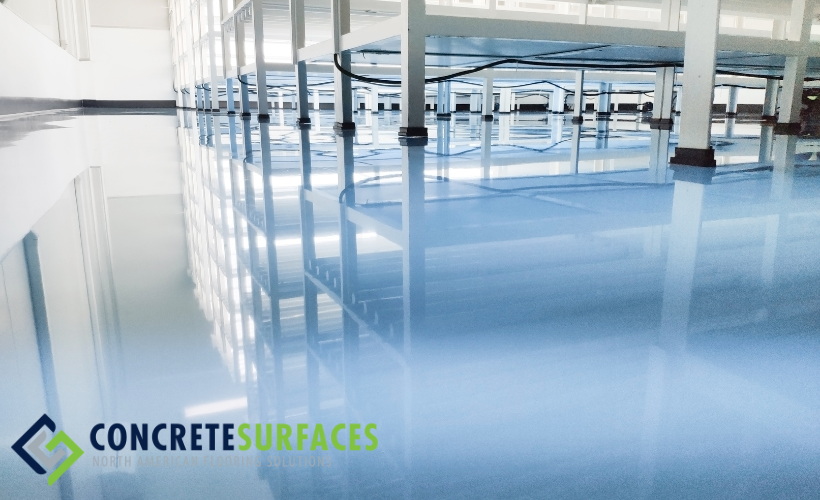

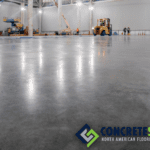
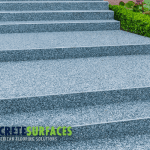
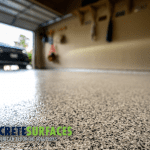
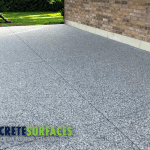

Share This Article
Choose Your Platform: Facebook Twitter Google Plus Linkedin